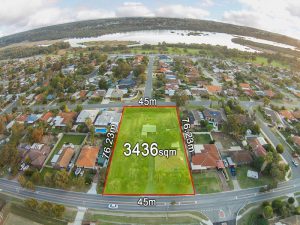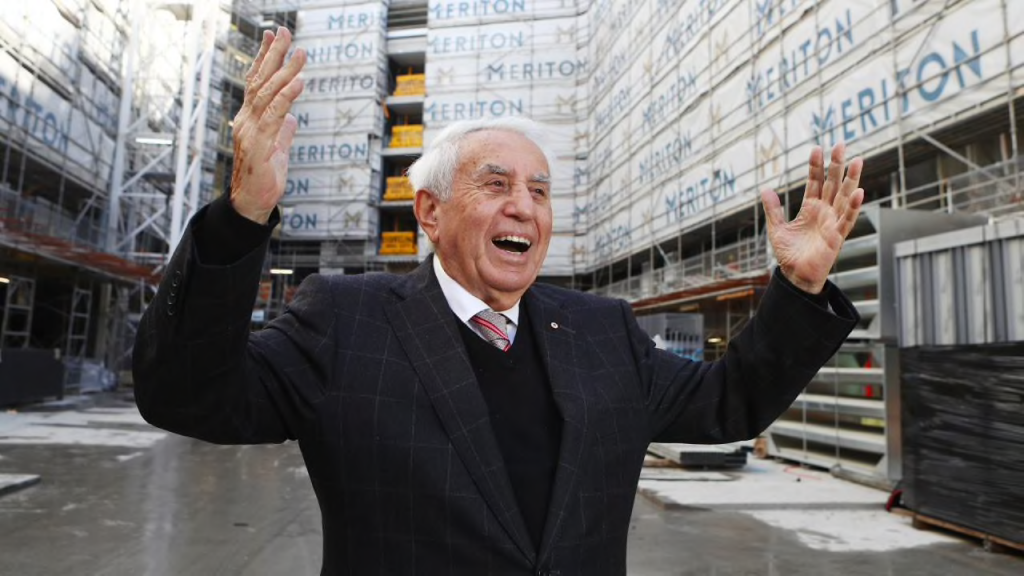If you’re a property investor thinking about the next step and want to explore the world of property development, it is important to understand that successfully developing property is a complex process.
Property development involves a wide range of activities, from finding development sites for sale, to planning, designing, building and adding facilities. It requires ambition, a diverse skill set, and an understanding of many subject matters.
Why property development?
Property development is a complex business, but if things go well, the payoff can be significant.
The benefits of a successful property development can include:
- Large profit margins
- Increased rental returns
- Generate income to pay off the mortgage faster
- Ability to use instant equity to fund other projects
- Achieve tax benefits from your new property
A successful property development could allow an investor to acquire high-performance properties with instant capital growth.
As a result, property developments can help investors grow their portfolio faster.
What’s required to become a property developer?
To become a successful property developer, you’ll need to be ambitious, have vision, and have the patience required to see the development through from concept to completion. The whole process can take years.
It is important for property developers to educate themselves and become experts in a range of relevant fields such as the real estate market, finance, economics and town planning, as well as the design and construction process.
Several institutions throughout Australia offer property development courses. This is a recent phenomenon, with such courses not on offer until recent years.
Property development courses normally cover the different stages of property development as well as provide an overview of the opportunities and challenges potential developers may face.

They are normally run by professionals within the industry with several developments under their belt.
When is the best time to venture into property development?
It is recommended that property developers are not new to real estate investing. Property development should be a step up on the investment ladder, rather than a first step.
For example, you might be a property investor who has been investing for several years and is looking for a new challenge, or you might own a portfolio of rental properties, which you have renovated.
Maybe you have gone through a subdivision process, completed a new build or made structural changes to a property.
All of these experiences would have given you skills, contacts and know-how that you can then put to good use as you undertake your first development project.
You will likely make mistakes as you take your first steps as a property investor, so it is recommended that you start small and move your way up. It will be less financially damaging if things go wrong during a renovation than while undergoing a site development.
You can use the lessons learnt along the way to guide you through your first property development, and lessen the chances of making costly mistakes.
Selling a property with Development Approval
A good option for those just getting started in the world of property development is to take a development site to the Development Approval stage and then on-sell to either a builder or an established developer.
The benefits of this approach include:
- You can still make a healthy profit with reduced risk
- Less funds needed to complete the project
- Quick turn around
- You can start small and use the experience to work your way up
Understanding land
The core principle of property development is to add value by enhancing a piece of land. You can do this by subdividing a section to create additional lots or by building additional dwellings on a site.
Local council and zoning regulations dictate what can and cannot be done with a piece of land. A Brisbane development will have different influencing factors from a development in Sydney.
For this reason, it is crucial to do your due diligence before purchasing your development site.
Finding development sites for sale
Choosing the right site for your development is the key stepping stone for a successful investment.

There are a large number of houses on big sections and vacant sites for sale, but not all of them have what it takes to make them suitable for development.
Things to consider when choosing your site include:
Location
Is the site close to schools, public transport, and amenities? Is the suburb attractive for potential renters or buyers? If you are planning to build and sell, you should buy in an established suburb rather than an up-and-coming area.
Topography
A site that isn’t flat will result in extra building costs. You should take this into account as you do your numbers.
Size
The size and width of a site will have an impact on what you are allowed to build as per zoning regulations. Is the block big enough to build multiple dwellings?
Competition can get fierce for sites that are optimum for development, so you must use conventional and unconventional methods when searching for your ideal block of land.
You can read our article on how to find development sites for sale for expert tips and advice.
Assessing your investment options
There are several types of properties you can build as you develop your land, including houses, townhouses, and apartments.
Every one of these asset classes has its pros and cons, so you must consider your options carefully before choosing your investment path.
Whether you are looking for a Brisbane development site or want to build townhouses in Adelaide, Property Market Investor can help. Register with us to get tailor-made investment opportunities delivered to you.
Risk versus return analysis
No project is ever risk-free, but before you commence your first development project you should conduct a risk to return analysis.
As with any investment, your risk tolerance will impact your choice of project. Are you willing to take a greater risk in order to generate a greater return? Or would you prefer to take a more conservative approach?
Feasibility study
Before you kick-start your property development project, it is important to conduct a thorough feasibility study.
This process will include an evaluation of the project costs vs the projected gains. Your main goal as a property developer is to maximise the revenue while minimising the costs.
Due diligence
Undertaking due diligence is an essential part of property development. This means that as an investor you identify potential risks and decide how they are going to be mitigated.
Due diligence normally consists of engaging a lawyer to identify any constraints or encumbrances on the property which can impact the desired outcome of your development.
Finance
Obtaining development finance is a more complex and time-consuming process than applying for a personal home loan.
The number of units you are planning to build will also determine whether you need a residential or commercial property development loan.
It is recommended that you seek professional advice and assess all the available options, such as lending from banks, non-bank, and private lenders.
Read more: what’s the process for obtaining development finance
The development process
As a general guideline, a property development process normally has the following steps:
- Concept design
- Permits and approvals
- Marketing and pre-sales (if selling before starting construction)
- Construction
- Sales
- Settlement
It is recommended that you put together a development program with a schedule of the key activities that you need to undertake to complete each stage of the project.
A detailed plan will help you stay on track and analyse your progress.
Enlist the experts
Property development is not only risky but it can also be daunting and stressful.
You will need the help of several consultants and professionals to complete your subdivision project successfully. This will include surveyors, town planners, designers, architects, engineers, builders, mortgage brokers, solicitors, real estate agents, and more.
For your first few projects, you should also consider hiring a project manager to oversee the whole development process from site acquisition right through to sales.
Having a good team early on can prevent you from making common mistakes and achieve a better overall result.


Pingback: Must Know Tips For Obtaining Development Finance